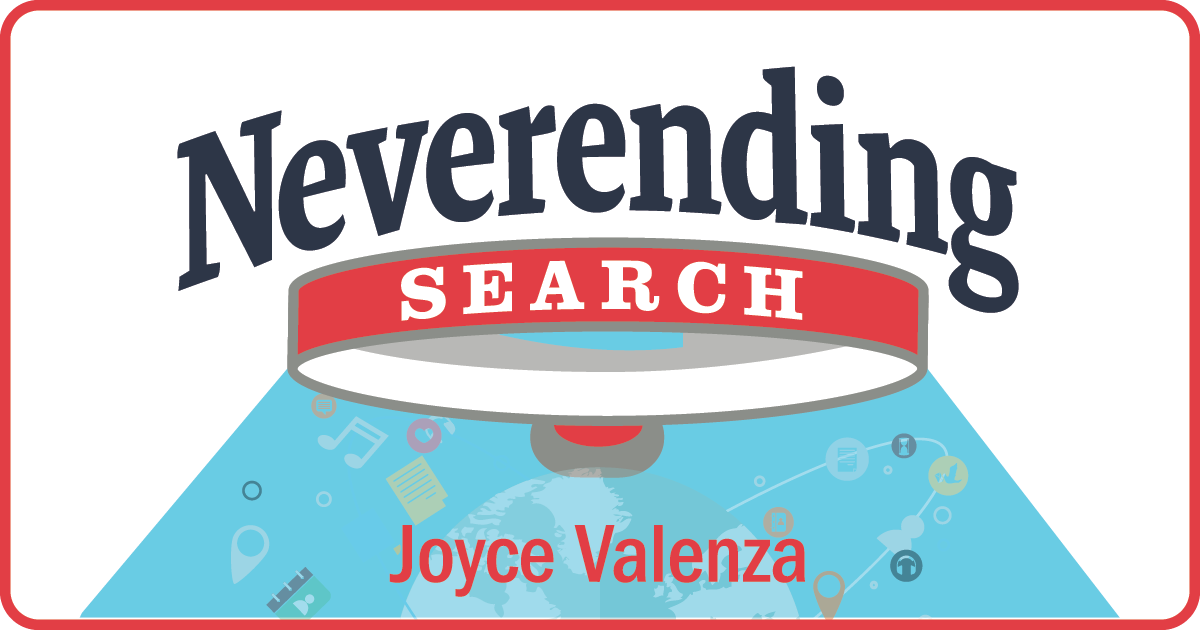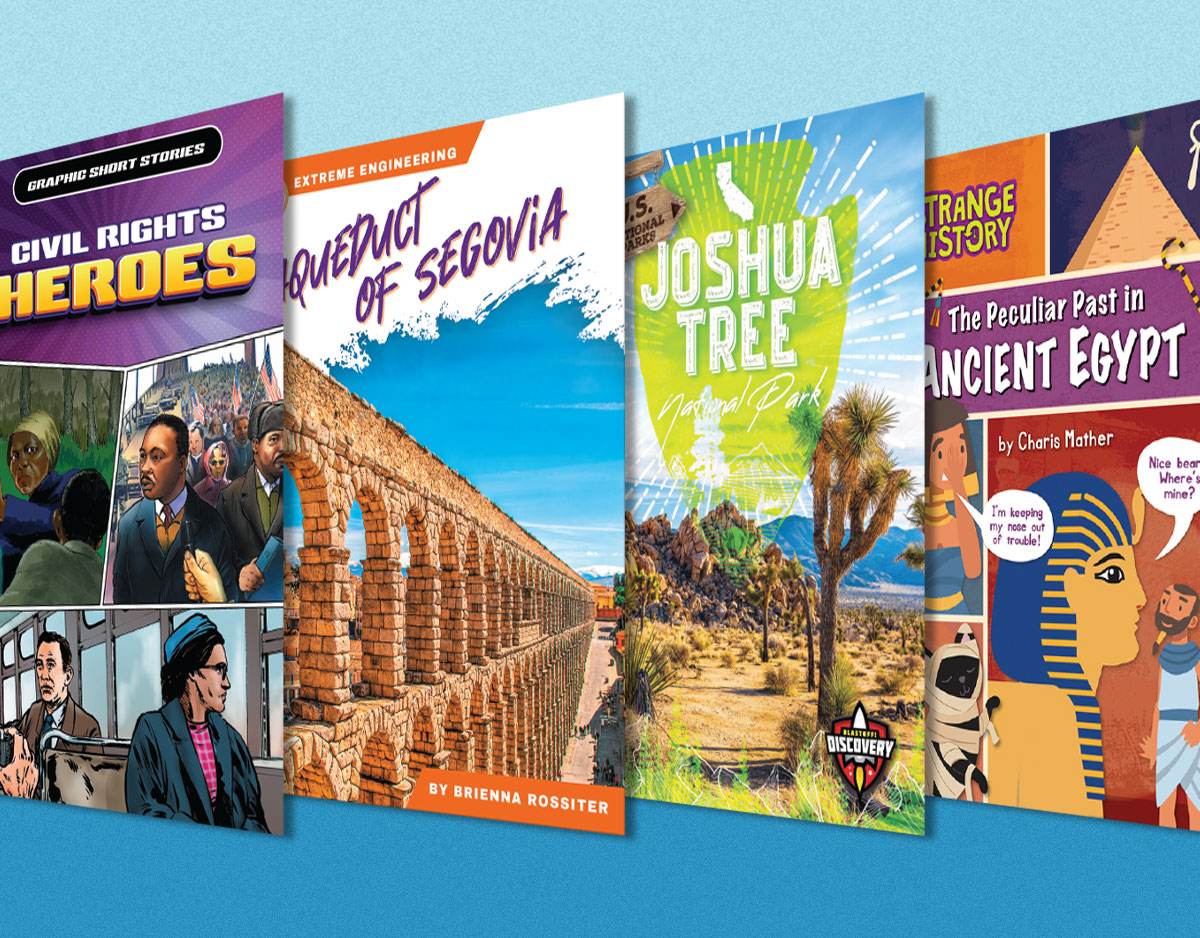SCROLL DOWN TO READ THE POST
How to host a hackathon (on the #sljhackathon breakfast)
 I’ve been to nearly all of them, but for me, this year’s 11th Annual SLJ Leadership Summit may have been the best ever. The speakers were inspiring. The crowd buzzed with energy. The panels were engaging and interactive. The mix of practitioners included a wide range of ages. A youth presence was obvious!
I’ve been to nearly all of them, but for me, this year’s 11th Annual SLJ Leadership Summit may have been the best ever. The speakers were inspiring. The crowd buzzed with energy. The panels were engaging and interactive. The mix of practitioners included a wide range of ages. A youth presence was obvious!
When SLJ asked me to help organize the vendor breakfast, I wanted to play a bit with format. I wondered, What would it look like if we leveraged the collective intelligence of the stakeholders–vendors, publishers, aggregators, librarians, library educators, scholars, etc.–present to solve some real problems?
ADVERTISEMENT
ADVERTISEMENT
Having read a little over the past couple of years about the concept of non-coder Hackathons, I thought I’d give one a try. I am including my resources in case you’d like to replicate or tweak or hack this event at your own conference.
Here is my introductory script, our format, and our links.
In a letter to investors, Mark Zuckerberg shared:
The Hacker Way is an approach to building that involves continuous improvement and iteration. Hackers believe that something can always be better, and that nothing is ever complete. They just have to go fix it — often in the face of people who say it’s impossible or are content with the status quo.
Hackers try to build the best services over the long term by quickly releasing and learning from smaller iterations.
Welcome to our non-coders’ Hackathon breakfast.
What is hacking? Hacking is the playful solving of problems by addressing them at parts of a system or culture. It’s about improvement of the system and how each of us can work together, leveraging collective intelligence to create the code. How can we team up to support the whole child
This breakfast is an active (and competitive!) hacking event. It’s about continual improvement of our profession. It’s about collaborative dreaming, out-of-the-box thinking and teamwork.
What is a hackathon?
From Wikipedia:
A hackathon (also known as a hack day, hackfest or codefest) is an event in which computer programmers and others involved in software development and hardware development . . . collaborate intensively on software projects . . .The term “hackathon” has also been used as a term for more general “focused innovation efforts” that includes non-coders and community members.
In our condensed version of a hackathon, participants will choose a topic, discuss a variety of challenges, identify one challenge and innovate a design solution. The benefit we enjoy this morning is that we have a variety of stakeholders at each table. We hope the collective wisdom and varied perspectives at each table might work as a single intelligence to generate breakthroughs for our complex challenges.
Logistics:
You will be joined at your table by one or more library leaders, as well as a corporate partner. (Tables were identified with corporate partner and library leaders’ names, as well as topics (selected in advance) as folks walked in. Participants selected a table that best suited their interests.)
Your table will select a scribe who will collect ideas on a Google Doc set up for each table on the existing Hackathon grid and a prototype ambassador or ambassadors who will help deliver the pitch. The grid offers a template for you to capture the prototyping tasks listed below.
At your self-selected tables, the task is to work intensely as teams to design solutions for focused problems by creatively, tweaking the system of which they are part.
Try to follow this timeline:
- Get started: Briefly introduce yourselves and appoint a scribe and an ambassador. (5 mins.)
- Identify (and agree on) one big, hairy issue around the topic. (10 mins.) Note: Our topics are intentionally broad. Your job is to brainstorm innovations. For instance, working on ebooks as a theme you might prototype, a perfect summer reading list that incorporates ebooks across vendor platforms.
- Brainstorm three potential solutions for the issues surrounding the table topic. Remember: There are no bad ideas in brainstorming! Select one of those solutions. (10 mins.)
- Prototype: Select one of those solutions. Consider in what ways can you envision a new reality? Work together to design some form of plan or prototype. You may share your prototype in your document as text, a drawing, audio, video, etc. (Use any software you like and link to in in your Google Doc.) (20 mins.)
Your document should share:
- The creative idea and what it would look like
- The idea’s purpose, audience and impact
- Ways our community stakeholders might contribute to the idea’s success
- Idea ambassadors: go-to people who would be resources for the idea following our hackathon
Please also list names of all team members on your document.
- Pitch: What is your elevator speech for the innovation or hack and who will pitch it? (5 mins.) Please share a cleaned-up pitch for your innovation/prototype/hack on this padlet.
Groups engaged in deep conversation and planning and the pitches exceeded our expectations. Folks ran up to the front of the room with little skits, passionate pleas, etc.
Following the pitch session, I collected ideas and links from the Docs and the Padlet and transferred them to this List.ly to gather the feedback from the conference participants. Throughout the conference, participants were be able to offer feedback and select/rank their top choices for the best solution/prototype/code. The prize: winning hackers will have their hack written up by SLJ as an editorial feature
Links to resources:
- Google Doc Hacking grid
- Background and instructions
- Padlet for final pitch
- List.ly for ranking pitches
Look for another Hackathon event at AASL. Thursday night from 10PM till midnight join the fun at Hack the Association: or Talkin’ About our (R)Evolution!
See also Diana Rendina’s reflection on the event as a participant.
Filed under: #sljhackathon, SLJ Summit, sljsummit, technology
About Joyce Valenza
Joyce is an Assistant Professor of Teaching at Rutgers University School of Information and Communication, a technology writer, speaker, blogger and learner. Follow her on Twitter: @joycevalenza
ADVERTISEMENT
SLJ Blog Network
Name That LEGO Book Cover! (#53)
Cover Reveal and Q&A: The One and Only Googoosh with Azadeh Westergaard
Exclusive: Vol. 2 of The Weirn Books Is Coming in October | News
Take Five: Middle Grade Anthologies and Short Story Collections
The Classroom Bookshelf is Moving
ADVERTISEMENT
ADVERTISEMENT








